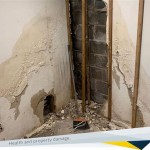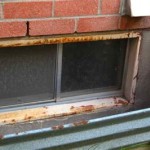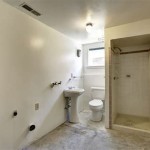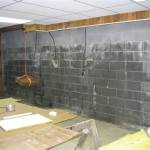What Do I Do If My Basement Smells Like Sewer?
A sewer-like smell in the basement is a serious issue that should never be ignored. This unpleasant odor indicates a problem with the plumbing system or sewer line, potentially exposing occupants to harmful sewer gases and posing health risks. Addressing the problem promptly is crucial to prevent further damage and maintain a healthy living environment.
Several factors can contribute to a basement smelling like a sewer. One common cause is a dried-out P-trap. P-traps, the U-shaped pipes found under sinks and other drains, hold a small amount of water which creates a seal preventing sewer gases from entering the home. If these traps dry out due to infrequent use, the gases can escape into the basement. Similarly, floor drains, often found in laundry rooms or unfinished basements, also have P-traps that can dry out, particularly if rarely used.
Clogs in the sewer line are another potential culprit. These blockages can restrict the flow of wastewater, leading to backups and the release of sewer gases. Clogs can be caused by a variety of factors, including tree roots infiltrating the pipes, the buildup of grease and debris, or damaged pipes.
Vents play a critical role in maintaining proper pressure within the plumbing system. These pipes extend through the roof and allow air to enter the system, preventing pressure imbalances that can cause slow drainage or allow sewer gases to escape. A blocked vent, often caused by debris, nests, or snow, can disrupt this balance and contribute to sewer odors in the basement.
Cracks or leaks in sewer pipes provide another pathway for sewer gases to enter the basement. These can occur due to age, settling of the house, or damage from tree roots. Even small cracks can allow significant amounts of sewer gas to escape, leading to a persistent foul odor.
A leaking or overflowing sewage ejector pump can also cause a basement to smell like sewer. This pump is used to move wastewater from fixtures located below the main sewer line, such as those often found in basement bathrooms. If the pump malfunctions or the tank overflows, raw sewage can be released, resulting in a strong odor.
Upon detecting a sewer-like odor in the basement, several steps can be taken to identify and address the issue. Begin by checking all drains, including seldom-used floor drains, to ensure the P-traps are filled with water. Pouring water down the drain can refill a dry trap and potentially eliminate the odor. If this doesn't resolve the problem, further investigation is necessary.
Examining the plumbing fixtures for leaks is the next step. Look for visible signs of water damage or dripping pipes. A leaking pipe can contribute to moisture problems and potentially allow sewer gases to escape. If leaks are detected, contacting a qualified plumber is recommended.
If the source of the odor remains elusive, checking the floor drain is essential. Remove the drain cover and inspect for any blockages or signs of standing water. Cleaning the drain and ensuring it's clear of debris can sometimes resolve the odor issue. However, if the problem persists, a professional plumber should be consulted.
It's crucial to avoid using chemical drain cleaners as a first course of action. While these products can sometimes clear clogs, they can also damage pipes and create more serious problems in the long run. Furthermore, their effectiveness is limited, and they may not address the underlying cause of the sewer odor.
Contacting a qualified plumber is recommended if the source of the odor can't be easily identified or resolved. Plumbers have specialized equipment, such as sewer cameras, that allow them to inspect the sewer line and identify any blockages, cracks, or other issues. They also possess the expertise to repair or replace damaged pipes and ensure the plumbing system functions correctly.
Preventing future sewer odors in the basement involves several key steps. Regularly flushing infrequently used drains and floor drains helps keep the P-traps filled with water and prevents sewer gases from escaping. Avoiding pouring grease or oil down the drain is also important as these substances can solidify and contribute to clogs.
Properly disposing of sanitary products and avoiding flushing items that don't belong in the toilet can help prevent blockages. Scheduling periodic inspections of the plumbing system by a qualified plumber can identify potential problems early on, preventing more costly repairs down the road.
Maintaining adequate ventilation in the basement helps prevent the buildup of moisture and odors. Ensuring proper grading around the foundation directs water away from the house and prevents it from entering the basement. These preventative measures can significantly reduce the risk of encountering sewer odors in the future.

Why Is There A Sewer Smell In My Basement Reddi Plumbing

Sewer Smells In My Home Fiskdale Sturbridge Ma

Why Is There A Sewer Smell In My Basement

How To Eliminate Basement Odor And Sewer Smells Family Handyman

Troubleshooting Sewer Gas Smells City Wide Plumbing

How To Eliminate Basement Odor And Sewer Smells Family Handyman

Septic Stench What That Rotten Egg Smell Means And To Do About It Flohawks Plumbing
I Have A Faint Sewer Smell In My Basement Utility Room M Having Plumber Come To Look At Ejector Tomorrow Is It Alright For Family Sleep The House

Sewer Smell In Your Home Here S What To Do Boss Plumbing

How To Eliminate Sewer Smells Drain Cleaning Tips
Related Posts







